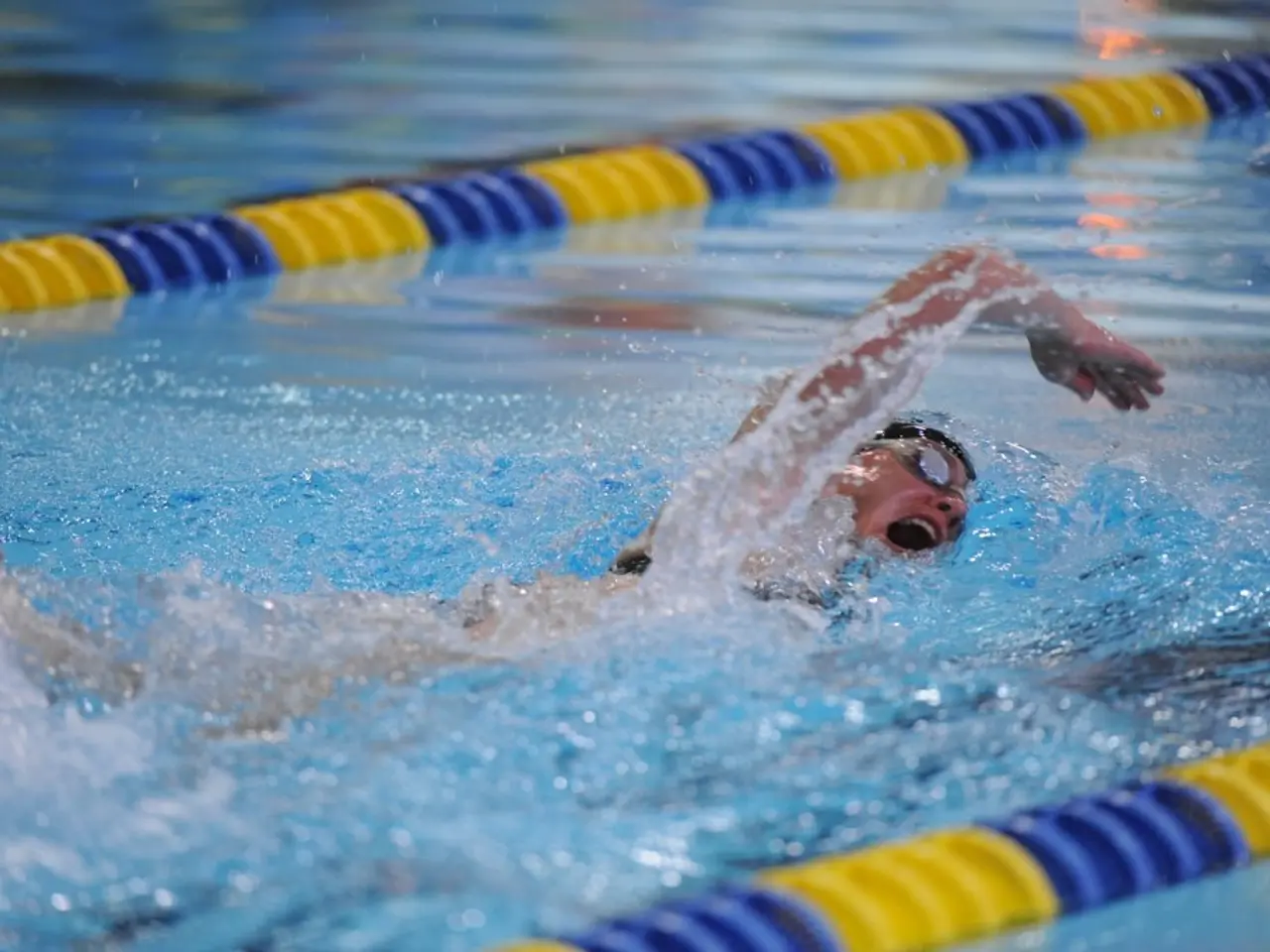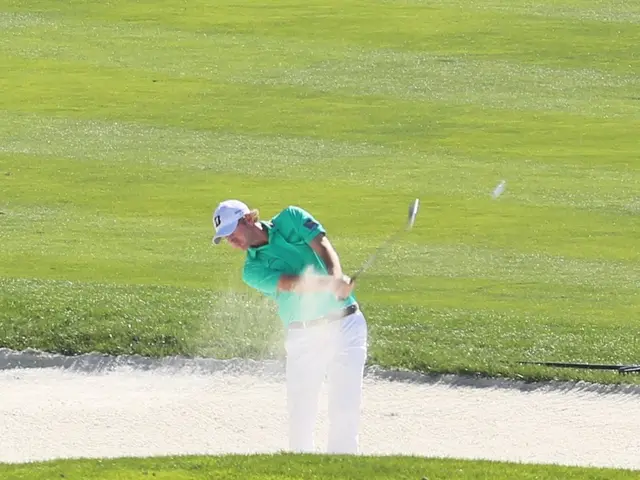Adolescent prodigy Yu, a 12-year-old Chinese athlete, sparks awe and apprehension due to his early prowess and accolades in his field
In the recent world championships, Yu Zidi, a 12-year-old swimmer from China, made history as the youngest medallist in the 52-year history of the event. However, her achievement has sparked a heated debate about the ethics of young athletes competing at such a high level.
Yu Zidi herself described the Singapore meet as more intense than she had imagined, yet she appreciated the great atmosphere. Meanwhile, Australia's head coach Rohan Taylor expressed caution about selecting a 12-year-old for open competition at a major global meet but did not rule it out entirely.
The ethics of children, particularly those around 12, competing in elite swimming centers is a complex issue. It involves balancing the benefits of sport with the potential physical and mental risks associated with intensive training and competition. Key ethical considerations include avoiding overtraining, ensuring the sport remains enjoyable rather than solely performance-driven, and preventing harm to young athletes’ development.
Physically, intense early specialization and heavy training loads can lead to overuse injuries, stunted growth, or delayed puberty if not properly managed. Mentally, young swimmers pushed too hard may experience burnout, anxiety, reduced intrinsic motivation, and a loss of the joy of the sport. Conversely, swimmers who maintain intrinsic motivation—driven by love of swimming rather than external rewards such as medals or ribbons—tend to enjoy longer, more fulfilling careers and better cope with setbacks like injury or poor performance.
The case of Yu Zidi has reignited this debate, with some child protection advocates viewing her success dimly due to her young age. Linda Flanagan, a vocal opponent of children competing in elite sport, expressed concerns about the ethics of someone so young competing at the highest level. World Aquatics Executive Director Brent Nowicki has also expressed the need to reconsider if it is appropriate for 12-year-olds to compete at the highest level.
However, programs like YMCA's swim teams focus on promoting core values such as sportsmanship and personal progression alongside competition, which can help provide a more balanced, healthy environment for young swimmers.
The World Aquatics review may change the rule that allows 12-year-olds to compete in world swimming championships. The IOC data suggests that predictions of super-stardom for young athletes may not bear out, with just over 30% of under-18 athletes who competed at the Olympics returning as adults. Michael Bergeron, co-author of the IOC’s consensus statement on youth athletes, also suggests that athletes who excel at a young age are rarely the ones to excel as older adolescents or adults.
Despite the controversy, Yu Zidi's performance at the world championships was impressive. She qualified for the event at the national championships in May and recorded personal bests in the 200m and 400m individual medley (IM), and 200 butterfly. She won a relay bronze and came fourth in three individual events on her world championships debut. Yu Zidi expressed a desire to bring back the medal from the world championships to share with her family.
The Chinese Swimming Association and China's General Administration of Sport did not respond to requests for comment on the national swim team's safeguarding protocols for child athletes. Rohan Taylor would ensure a process is in place to support the athlete and avoid putting any expectation or pressure on them.
In summary, while elite competition at a young age like 12 is possible, ethical practice requires prioritizing the child's wellbeing by preventing overtraining, fostering intrinsic motivation, ensuring enjoyment, and monitoring physical and mental health to avoid negative impacts.
- The debate on the ethics of young athletes competing at high levels, as seen with Yu Zidi's performance in the world championships, involves the balancing of sports benefits against potential physical and mental risks associated with intensive training and competition.
- The World Aquatics review may reconsider the rule that allows 12-year-olds to compete in world swimming championships, considering the long-term implications for young athletes' careers and wellbeing.
- Programs like YMCA's swim teams focus on fostering core values such as sportsmanship and personal progression alongside competition, creating a more balanced and healthy environment for young swimmers.
- Informed by the IOC's consensus statement, it is suggested that athletes who excel at a young age are rarely the ones to excel as older adolescents or adults, indicating a need for careful management and perspective in nurturing young talents.







